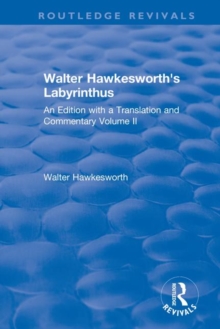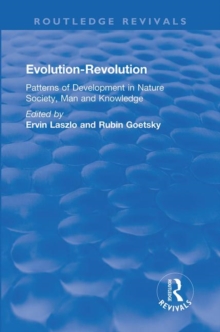
Teacher-Pupil Conflict in Secondary Schools (1987) EPUB
by Kate Cronk
Part of the Routledge Revivals series
EPUB
Description
Published in 1987, the central question with which this book is concerned is what can, and should, teachers do about teacher-pupil conflict in schools? Few teachers in secondary education would need to have this sort of conflict described as even if that have been fortunate enough to avoid it themselves they will know of it from staffroom discussion and from the media. In can be seen in disorderly classrooms where pupils 'mess about' and 'have a laugh', and in the bleak expression on the face of their teacher. Equally it can be detected in those classrooms where the teacher is in firm control, but where pupils gaze listlessly out of the window, or only minimally comply with work demands. It is characterized by sudden blazing temper on both sides, and also by long periods of weariness, boredom and disengagement. It is not that conflict which might arise from temporary private troubles, from having a bad day or going through a bad patch, for it is there week in week out, and involves significant numbers.
Such conflict has been of interest to both psychologists and sociologists of education and important contributions have been offered by both of these disciplines. Sociologists have mapped out the differing cultural values and norms which appear to promote it. They have identified the social constraints present within the environment in which it is produced, constraints which emanate from the socio-economic organization of society and from the maintenance of an institutional framework, and which affect the micro-dynamics of teacher-pupil interaction. Psychologists have described the effects on behaviour of genetic factors, environmental conditions and cognitive states. Important though such insights are, however, they can only speak indirectly to teacher practice. This book provides an educational approach to the subject discussing topics including theoretical considerations, teacher-pupil discussion and relationships between classroom behaviour and the curriculum. It will appeal to those involved with schools and education, as well as psychologists, educational sociologists and researchers.
Information
-
Download - Immediately Available
- Format:EPUB
- Pages:248 pages
- Publisher:Taylor & Francis
- Publication Date:12/01/2018
- Category:
- ISBN:9781351215008
Other Formats
- Hardback from £115.00
- Paperback / softback from £31.99
- PDF from £17.81
Information
-
Download - Immediately Available
- Format:EPUB
- Pages:248 pages
- Publisher:Taylor & Francis
- Publication Date:12/01/2018
- Category:
- ISBN:9781351215008










